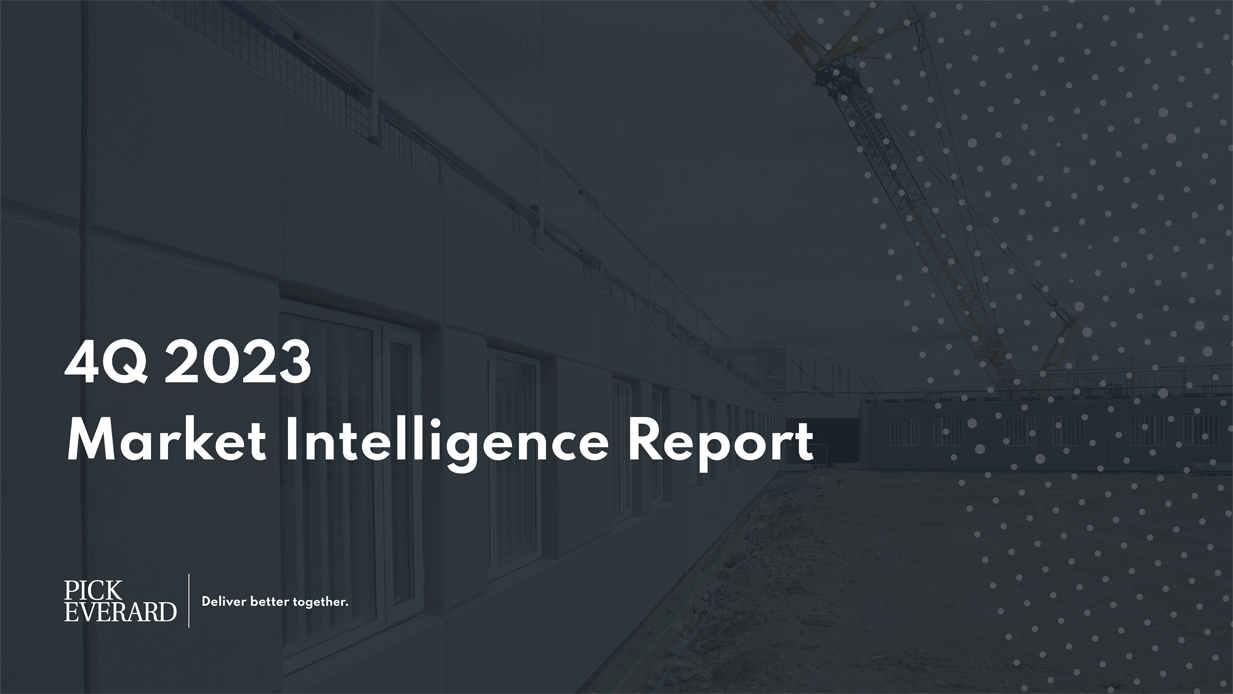
Pressure on public sector buildings has been dominating the news over the past six months, with a report analysing whether modern methods of construction (MMC) are helping or hindering projects reach successful outcomes.
In a survey conducted by leading independent property, construction, and infrastructure consultancy Pick Everard, key questions were put to its multi-disciplinary connections including clients, consultants and contractors around their experiences with MMC. The uptake of such practices is clear, with 85% of those surveyed having actively used a modern method as part of a project, and 80% also expecting to see utilisation to increase over the next five years.
Highlights of the Q4 Market Intelligence Report also revealed the potential impact of the new Building Safety Act Gateway 2, which came into effect in October 2023. 80% of contractors have reported they see it as either ‘affecting’ or ‘maybe affecting’ programmes and procurement for MMC builds.
Kieran Bradley, Director at Pick Everard, said: “By giving a voice to the construction industry through this survey, we have been able to supply insight around how MMC is viewed directly from those actually utilising such methods. It’s clear there are huge benefits particularly when addressing the challenges of the public sector, such as overcrowded prisons and aging schools and other public buildings that have become structurally unsafe due to RAAC – but is it always the right option?
“An interesting breakdown in the results relates to improvement in the quality of buildings using MMC. There is a marked different between the views of contractors, with 92% citing an overall improvement, compared with a lower figure for consultants (72%) and clients (67%).”
“This may be attributable to these parties’ specific roles in delivering projects. In some instances, MMC can prove to be too complicated, or the site might just be too small to use cranes. In other cases, it can be down to the actual scheme. Add to this the need to pay an upfront fee and immediate design approvals puts many at a significant disadvantage if changes need to be made later on.”
In addition, the report also explores the ongoing inflation and interest rate situation and the impact on the construction sector regarding demand for work, wages and skills shortages.
 Gavin Mason, Director at Pick Everard, commented: “Despite the figures falling, we are also still facing high inflation rates, which is only adding to the pressure for our public sector clients and how we respond to that from our industry. The Government has pledged to halve inflation by the end of the year, from when it peaked at more than 11% at the end of 2022. While there is promising movement in some regions, nationally demand is still in decline.
Gavin Mason, Director at Pick Everard, commented: “Despite the figures falling, we are also still facing high inflation rates, which is only adding to the pressure for our public sector clients and how we respond to that from our industry. The Government has pledged to halve inflation by the end of the year, from when it peaked at more than 11% at the end of 2022. While there is promising movement in some regions, nationally demand is still in decline.
“From our construction survey, we predict construction inflation will slow to a rate of 2.5% per annum, based on current demand in the property sector for new work and an assessment of capacity within the industry. When asked about what the biggest contribution to inflation has been, we found the majority (45%) of participants believe wage inflation has been the main factor. We can therefore see where part of the challenge lies when looking at the labour gap, with a shortage of around 45,000 skilled workers according to the, which we believe vocational training is essential in combatting.”
Factoring this in when looking at the potential for MMC is potentially where some of the results came from regarding the downsides to its utilisation.
In addition to the increased upfront costs (32%), and programming issues (24%), the market research has found that future flexibility and design change (31%) to be the biggest challenges of using MMC. Interestingly, design compliance (13%) and quality of the finished article (0%) weren’t seen as so challenging (graph 3).
However, the report also aims to look ahead to how MMC could be improved, and more opportunities revealed for the sector to make the most of its advantages.
Kieran added: “When we asked people what one change to MMC would improve its uptake, three key themes were returned; education, early integration and flexibility. Enhancing a more rounded understanding of the process and the appropriate use for MMC was a view held by the majority of respondents and one that we echo.
“Supporting the sector through knowledge sharing, such as this report, is integral to our goals of a collaborated approach and supporting the sector through the next quarter and throughout 2024. We feel positive inflation rates will level out over the course of the next year, and hopefully bring back more investment and opportunity for our industry.”
To read the Q4 2023 Market Intelligence Report in full, visit https://landing.pickeverard.co.uk/Downloads/Pick-Everard-Q4-2023-Market-Intelligence.pdf









